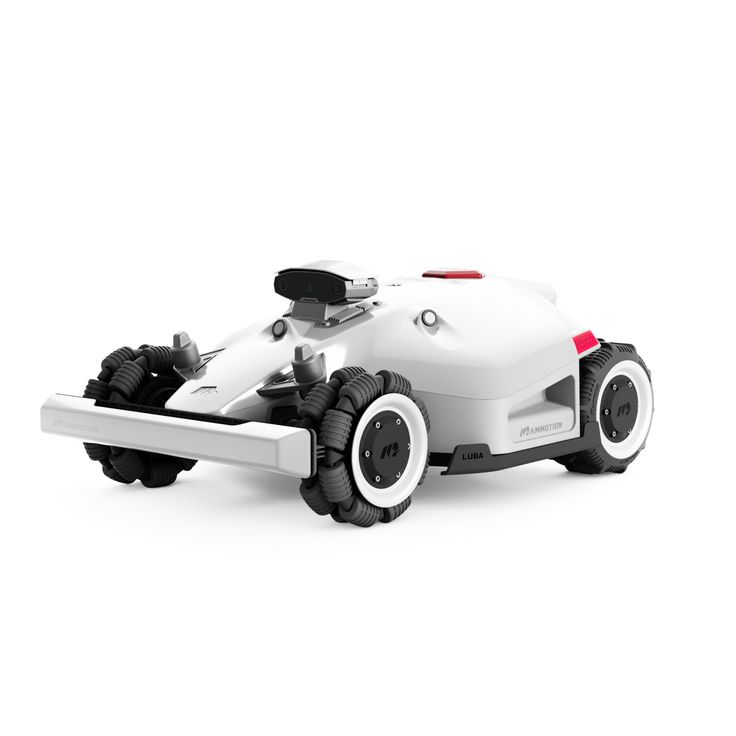The primary appeal of an auto mower often lies in its convenience and the liberation it offers from manual labor. However, beyond the time-saving benefits, these robotic lawn care assistants can significantly contribute to the long-term health and vitality of your lawn. Unlike traditional mowing methods that can sometimes stress grass, the consistent and gentle approach of an auto mower fosters a stronger, greener, and more resilient turf. Understanding how these machines positively impact your lawn can further underscore their value as a smart home investment.
1. Frequent, Consistent Mowing
One of the most impactful ways an auto mower improves lawn health is through its ability to mow frequently and consistently. Traditional mowing typically happens once a week or bi-weekly, leading to significant growth between cuts. This means a larger portion of the grass blade is removed at once, which can shock the plant and make it more susceptible to disease and stress.
Auto mowers, on the other hand, can be programmed to mow daily or every other day. This “little and often” approach ensures that only a tiny fraction of the grass blade is ever removed at a time. This gentle trimming minimizes stress on the grass, allowing it to focus its energy on root development and overall health rather than recovering from a drastic cut. The result is a denser, more uniform, and consistently green lawn.
2. Natural Fertilization Through Mulching
Most auto mower are designed to finely mulch the grass clippings back into the lawn. Unlike bagging clippings, which removes valuable nutrients, mulching returns these organic materials to the soil. These tiny clippings decompose quickly, releasing nitrogen, potassium, and phosphorus – essential nutrients that nourish the grass roots.
This continuous return of nutrients acts as a natural, slow-release fertilizer, reducing the need for synthetic fertilizers and improving soil structure over time. A healthier soil environment, rich in organic matter, leads to stronger grass that is more resistant to pests, diseases, and drought.
3. Reduced Compaction and Even Growth
The lightweight design of auto mowers, combined with their random or systematic mowing patterns, helps to prevent soil compaction. Heavy ride-on mowers or even repeatedly walking the same paths with a push mower can compact the soil, making it difficult for water, air, and nutrients to reach the grass roots. Auto mowers distribute their weight evenly and vary their paths, minimizing pressure on the turf.
Furthermore, the consistent cutting height across the entire lawn promotes even growth. Without areas being missed or cut unevenly, the grass blades receive uniform sunlight exposure, leading to a more consistent and aesthetically pleasing appearance.
4. Discouragement of Weeds and Moss
Frequent mowing by an auto mower can naturally suppress weeds and moss. By consistently trimming the grass, the mower prevents many weeds from flowering and setting seed, thus limiting their spread. Moss, which often thrives in longer, shaded grass, is also discouraged by the regular exposure to light and air that consistent short cutting provides. A dense, healthy lawn created by frequent mowing also outcompetes weeds for resources, making it harder for them to establish themselves.
5. Less Stress and More Resilience
Ultimately, the cumulative effect of frequent, gentle cuts, natural fertilization, and reduced compaction leads to a less stressed and more resilient lawn. A healthy lawn is better equipped to withstand environmental challenges such as heatwaves, dry spells, and even minor pest infestations. Over time, homeowners will notice a significant improvement in the overall vigor, color, and density of their turf, transforming it into a vibrant and robust outdoor space.
In conclusion, an auto mower is more than just a convenience tool; it’s an active participant in cultivating a healthier, more beautiful lawn. Its consistent, gentle approach fosters an environment where grass can thrive, leading to long-term benefits that extend far beyond simply keeping the grass short.



